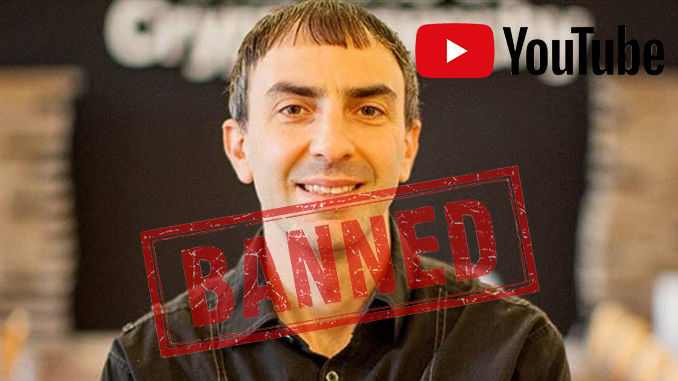
With a good 90,000 subscribers, Tone Vays’ YouTube channel is a constant in the crypto scene. Now, almost without warning, YouTube has completely blocked this channel. YouTube only corrected its decision after strong protests.
Does YouTube want to ban content dealing with crypto currencies and investment opportunities from the platform? As early as Christmas 2019, dozens of video bloggers from the crypto scene complained that their often elaborately produced clips were blocked on YouTube without warning and without transparent justification. In many cases, objections led to re-publication. Now it has hit Tone Vays, a popular analyst with background from Wall Street.
https://twitter.com/ToneVays/status/1250793993396539394
On Twitter he first reported that a single YouTube video was classified as “harmful or dangerous” and therefore blocked. Shortly afterwards, Tone Vays witnessed YouTube blocking his entire channel.
https://twitter.com/ToneVays/status/1250800190757523465
It took him half a day to announce to his more than 90,000 subscribers on YouTube that the platform had reconsidered its decision and he could resume broadcasting:
Why does YouTube have concerns about crypto content?
YouTube as the largest video platform in the world is part of the Google empire. Google itself has restrictions on ads that deal with crypto-content, so advertisers must first obtain special permission. In the content rules for YouTube, crypto-currencies and related topics are not specifically listed, and a general ban or other restrictions are not officially communicated. In the December 2019 incidents, YouTube later spoke of “misunderstandings”. At first, there was no reason why the Tone Vays channel was reactivated.
Large platforms generally have a hard time with advertising and content from the crytobusiness, Facebook, for example, did not lift an extensive advertising ban until May 2019. And it must also be remembered that the boundaries between advertising and informative contributions are often blurred, keyword influencer. Other big names in the scene, such as Ivan on Tech, have, after bad experiences with YouTube and Co., decided to play out their contributions via their own homepages.
Conclusion: YouTube should dispel suspicion of censorship through transparent guidelines
One thing the events surrounding Tone Vays and YouTube teach us: To prevent accusations of censorship from arising in the first place, YouTube is needed. With clear rules and transparent management of complaints, YouTube would do a good service to all concerned. After all, crypto-content is certainly not harmful per se, and certainly not to be compared with glorification of violence, pornography and other abysses. Not every publisher enjoys such broad support as Tone Vays, who at least for the moment has gotten off with a black eye.
Best Place to buy Bitcoin:

Leave a Reply